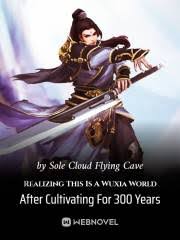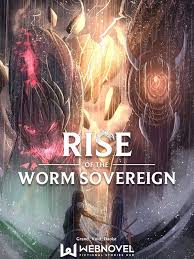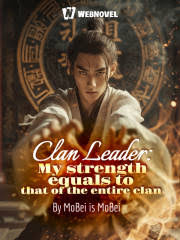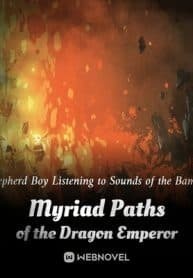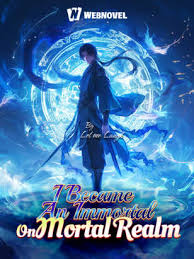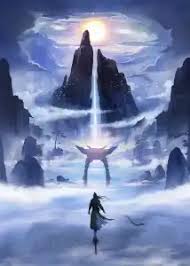The Story in 3 Sentences
Cui Heng, terrified by the system’s warning of a world ruled by planet-destroying Celestial Kings, barricades himself for three centuries of safe, obsessive cultivation, mistaking a humble Wuxia realm for a lethal Xianxia one .
His secluded sanctuary becomes an accidental academy, where lost souls like the idealistic peasant Hong Fugui stumble in, receive cryptic wisdom, and depart to reshape the world, utterly unaware their “Master Immortal” is just a man in over his head .
When his protection expires, he ventures out, Golden Core mastered, only to discover his cosmic dread was misplaced; the true adventure begins not in surviving gods, but in navigating the hilarious, unintended legacy he’s built among mortals who worship him .
Why It Stands Out
1. The Ultimate Safety Net Comedy
The novel’s genius lies in its core irony: the protagonist spends 300 years preparing for an apocalypse that doesn’t exist. His frantic, high-stakes cultivation within an invincible bubble, driven by pure, comedic terror of Celestial Kings, creates a unique blend of tension and absurdity that fuels the entire narrative . The world’s true Wuxia nature transforms his epic journey into a colossal, self-inflicted misunderstanding.
2. The Accidental Cult Leader
Unlike typical OP protagonists who seek power and followers, Cui Heng’s influence is entirely passive and unintentional. He doesn’t conquer; he simply exists, and his mere presence, coupled with offhand advice, turns visitors into legendary figures who reshape continents in his name. This “butterfly effect” of benevolent neglect is a refreshing and often hilarious take on the mentor trope .
3. Power Scaling as Punchline
The story brilliantly uses cultivation mechanics for comedic and narrative effect. The protagonist’s “inferior” Qi Refinement techniques effortlessly outclass the world’s pinnacle “Xiantian” or “Immortal” levels, turning every encounter into a farce where enemies fatally underestimate the quiet man who can fly centuries too early . The gap between his perceived weakness and actual, world-breaking power is the novel’s most consistent and satisfying joke.
Characters That Leave a Mark
There’s Hong Fugui – the peasant-turned-revolutionary whose encounter with Cui Heng ignites a dream of societal upheaval, transforming him from an oppressed farmer into a figure destined to “overthrow capitalism” and build a kingdom based on the sage’s accidental teachings .
You’ll meet Liu Yiyun, who alongside Zhang Shuming, operates at the realm of the gods, possessing a profound, almost scholarly understanding of cultivation’s deeper mysteries and the nature of disappearing powers, acting as high-level observers to the chaos Cui Heng indirectly sows .
And Zhang Shuming? They’re the one who, despite their godly status and deep cultivation knowledge, is not immune to moments of human astonishment and lost composure, reacting with genuine shock to revelations from peers like Pei Qingshu, grounding even the most powerful characters in relatable emotion .
The Flaws Fans Debate
The protagonist’s overwhelming, unchallenged power can make conflicts feel weightless and predictable, as no antagonist poses a genuine threat, leading to repetitive story beats.
A common complaint targets the supporting cast, who are often perceived as underdeveloped or purely functional, existing only to react to the MC’s power or deliver plot points, lacking their own compelling, independent arcs.
The quality of the official translation and editing has been heavily criticized by readers, with reports of repetitive paragraphs, entire duplicate chapters, and missing text that significantly disrupt the reading experience and immersion.
Must-Experience Arcs
Ch. 1–50: The 300-Year Sanctuary – The foundational arc where Cui Heng establishes his routine, his fears, and his sanctuary. We meet the first wave of visitors, including Hong Fugui, setting up the core dynamic of accidental mentorship and establishing the world’s perceived, terrifying scale .
Ch. 200–400: Whispers of the Immortal Venerable – As Cui Heng’s early students rise to prominence, their legends spread. This arc explores the growing mythos around the “Master Immortal” from the outside world’s perspective, showcasing the hilarious disparity between his secluded, anxious reality and his god-like reputation.
Ch. 600–792: The Emperor and the Sage – The culmination where Cui Heng’s most powerful proteges, like Hong Fugui who has unified realms and built an empire, come into direct contact with their oblivious teacher. It’s a collision of the world Cui Heng accidentally created and the man who just wanted to hide, forcing him to confront his legacy.
Killer Quotes
“Since I’ve already transmigrated to such a dangerous world, cultivation is a must. Otherwise, I’m afraid I’ll die on the spot after 300 years.”
“Big Brother Immortal, it was you who changed me. I will definitely cultivate the immortal sword art that you taught me painstakingly and do my best to pass it on.”
Cultural Impact
The novel’s premise has become a popular meme template within the webnovel community, often used to describe any situation where someone overprepares for a non-existent threat.
It sparked numerous online discussions comparing its “accidental god” trope to similar novels like “Top Tier Providence,” with fans debating which executed the concept better.
Despite translation issues, its unique comedic angle and completed status have earned it a dedicated, if sometimes frustrated, fanbase who appreciate its subversion of standard cultivation tropes.
Final Verdict
Start Here If You Want:
A hilarious, irony-driven cultivation comedy where the biggest threat is the protagonist’s own imagination.
A story about unintended consequences, where passive existence creates a world-altering legacy.
A completed, long-form webnovel that offers a satisfying, full-circle narrative payoff.
Study If You Love:
Deconstructions of the “overpowered protagonist” and “system” tropes, turning them into sources of humor and thematic depth.
Narratives that explore the gap between perception and reality, and how legends are born from misunderstanding.
The sociological impact of a single, reclusive individual on a world’s political and martial landscape.
Avoid If You Prefer:
Stories with high-stakes, evenly matched battles and constant physical peril for the main character.
Deeply fleshed-out supporting casts with intricate, personal storylines independent of the MC.
Flawless, professionally edited translations without any technical errors or repetitive text.
